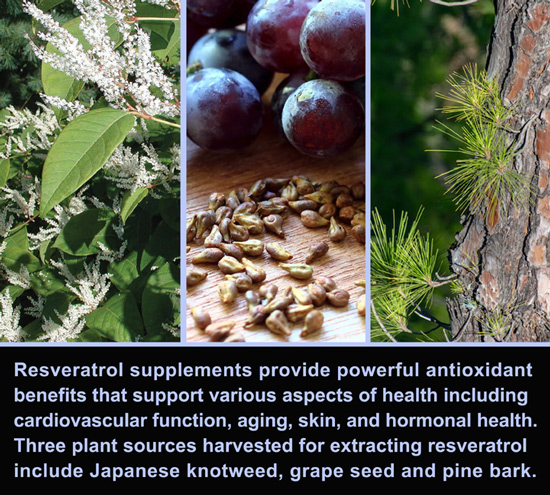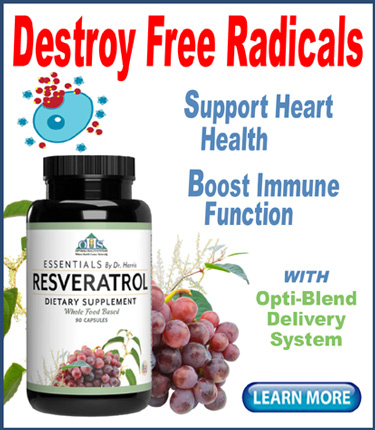A new study found a combination of resveratrol and Vitamin C increased the antioxidant capacity of postmenopausal women with insulin resistance by up to 33%.
Antioxidant capacity, in this case, refers to the disease-preventing antioxidant activity found in a person’s tissue and blood.
Similar to the way Total Antioxidant Capacity testing methods are used to determine the antioxidant capacity of foods and supplements, measuring a person’s antioxidant capacity can also be carried out. Doing so can serve as one of the “markers” that help determine the likelihood of a person contracting certain diseases.
The researchers in the current study noted the marker is especially critical in women as they age.
Oxidative damage can increase comorbidities with different degenerative diseases—diseases that worsen during and after menopause—so a healthier antioxidant capacity is obviously preferred.
Since insulin resistance is one of the metabolic diseases that plague aging women, the study focused on women with insulin resistence.
Dynamic duo?
While most people recognize Vitamin C is a critical immune-building nutrient, many don’t realize its also also a potent antioxidant. This is the reason the researchers, based in Mexico, studied it in tandem with another popular antioxidant—resveratrol.
To conduct the study researchers recruited 46 women diagnosed with early post-menopause and presenting with insulin resistance. The women were aged between 50 and 60 and were required to not be taking hormone replacement therapy.
20+ Years of Resveratrol
In September 2003 Harvard University researchers published a study showing resveratrol was able to increase the lifespan of human cells. That research led to an explosion of interest in the nutrient.
According to The Harvard Gazette at the time, the researchers discovered that resveratrol “extends the life expectancy of every organism that, so far, has been fed on it, including yeast, worms, and fruit flies.”
Read our previous article Happy Birthday Resveratrol here.
The participants were blindly randomized into one of three groups: 500 mg resveratrol, 500 mg Vitamin C, or 500 mg of each together.
All groups received two capsules, with a placebo replacing the other supplement in the single-dose groups.
The researchers noted that some anti-oxidants can actually become oxidants when consumed in extremely high concentrations; therefore, taking the two antioxidant nutrients in tandem helps avoid the generation of new free radicals that act as pro-oxidants.
To draw their conclusions the researchers evaluated blood samples, clinical status, and levels of antioxidants before and after three months of intervention.
The resveratrol and Vitamin C group showed a significant 33% decrease in lipid peroxidation.
Lipid peroxidation is a complex chemical process that leads to oxidative degradation of lipids, resulting in the formation of peroxide and hydroperoxide derivatives. It occurs when free radicals interact with lipids within cell membranes. This oxidative process is typically exacerbated by polyunsaturated fatty acids as they have carbon-carbon double bonds.
When tracking resveratrol and Vitamin C individually, the decrease in peroxidation was only 25% and 15%, respectively. These amounts did not reach statistical significance due to the small sample size; however, the wide variance is helpful in demonstrating the potential synergy benefit of taking the two antioxidants together.
In addition, researchers documented a significant 39% decrease in oxidative damage to proteins with the combination supplement. There was also an increase of 30% in total antioxidants measured in the combination group.
Lack of studies
While the study was relatively small in scale, the researchers stressed the importance of the findings since there is a lack of studies that investigate synergistic antioxidant combinations such as resveratrol and Vitamin C.
It is worth noting that antioxidants are naturally occurring, so there is no pharmaceutical company funding for research on antioxidant nutrients.
“It is the first pilot study that evaluates the combination of two antioxidants and its effect on oxidative stress and insulin resistance,” the researchers wrote in the study findings.
The research was conducted at the National Institute of Perinatology in Mexico City, Mexico. The findings were published in the journal Nutrients in November 2024.
– – –
Resveratrol and Vitamin C can be found in the following Optimal Health Systems products:
• Whole Food Resveratrol
• Optimal Whole C
– – –
Sources: Nutrients, PubMed Central, JustAPedia.org.


